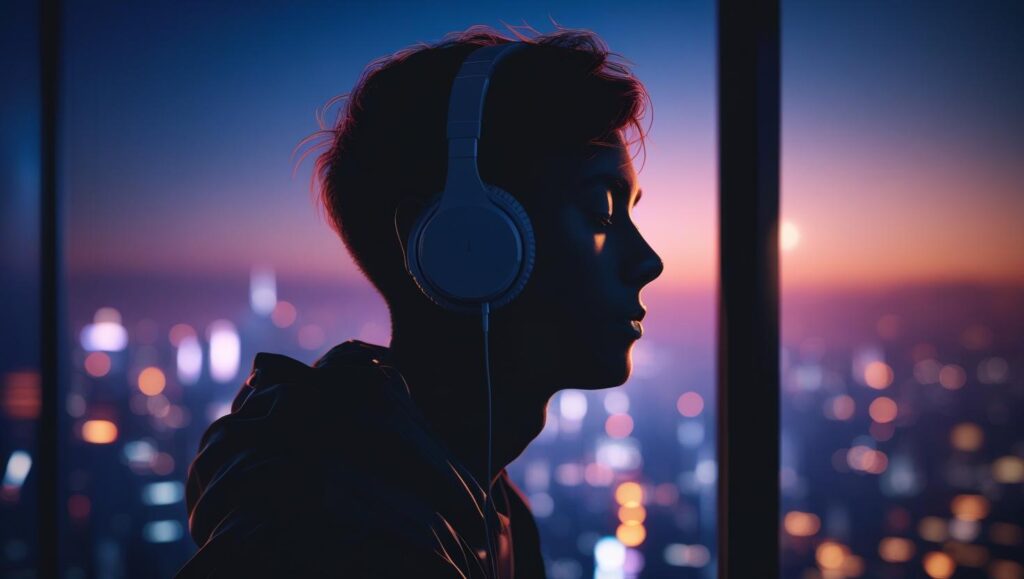The Transformative Power of Music on Mental Health
In a world where deadlines, screens, and constant notifications dominate our lives, music and its transformative power has a great role to play. While modern therapy and wellness practices like meditation, exercise, and yoga play a crucial role in emotional well-being, one age-old remedy often gets overlooked—music.
Music is more than just entertainment. It is a universal language of healing, capable of soothing pain, uplifting the spirit, and reshaping the way we think and feel. From ancient chants used in rituals to today’s scientifically backed music therapy programs, the role of music in mental health is undeniable.
The Science of Music and the Human Brain | Exploring the Transformative Power of Music
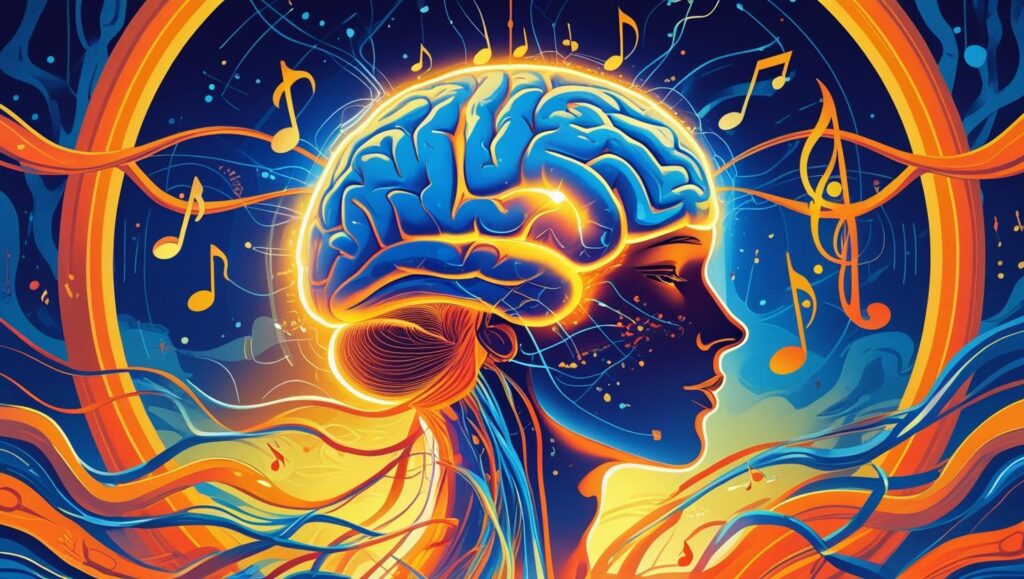
Scientists have long studied the effects of music on the brain. Here’s what research reveals
Dopamine Release: Listening to enjoyable music activates the brain’s reward system, triggering dopamine—the same chemical that makes us feel happy after exercise or eating our favorite food.
Reduced Cortisol: Stress is directly linked to cortisol levels. Music helps lower cortisol, creating a sense of relaxation and calm.
Neuroplasticity: Learning music strengthens connections between brain cells, improving memory, focus, and even mathematical skills.
Pain Relief: Studies show patients exposed to music before surgery experience lower anxiety and require less pain medication afterward.
Music as a Natural Stress Reliever | The Transformative Power of Music in Calming the Mind
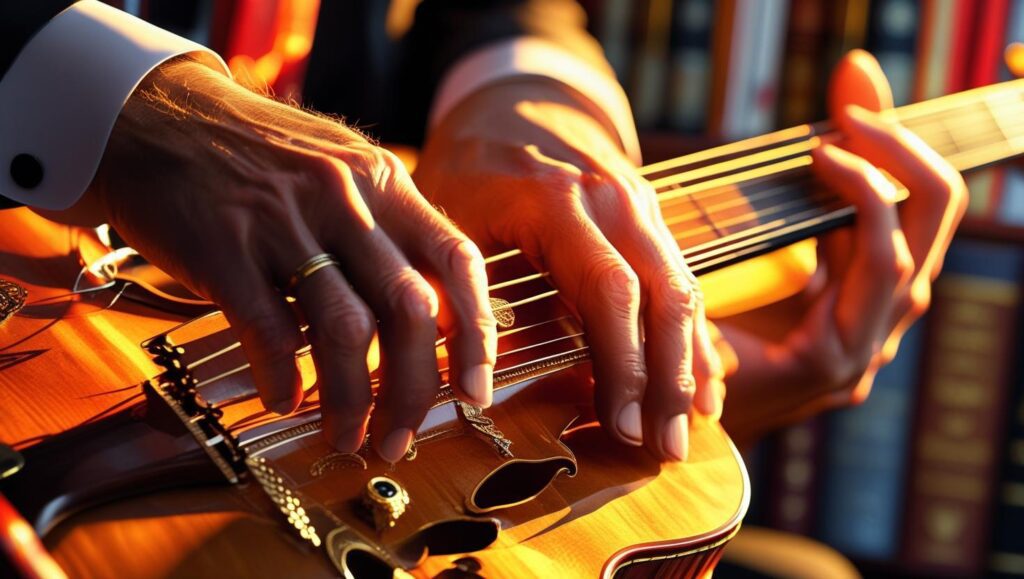
Stress and anxiety are among the most common struggles of modern life, and this is where the transformative power of music truly shines. Soothing rhythms—like classical piano or Carnatic ragas—help slow the heartbeat and relax the muscles. Actively listening to or playing music creates a mindful “flow state,” similar to meditation, where worries fade into the background. Music also provides emotional release—singing along to a favorite song or playing an instrument allows safe expression of sadness, anger, or joy. In fact, a Harvard study found that people who listened to just 30 minutes of calming music daily experienced significant reductions in blood pressure and stress within one month.
The Healing Power of Learning Music | Discovering the Transformative Power of Music
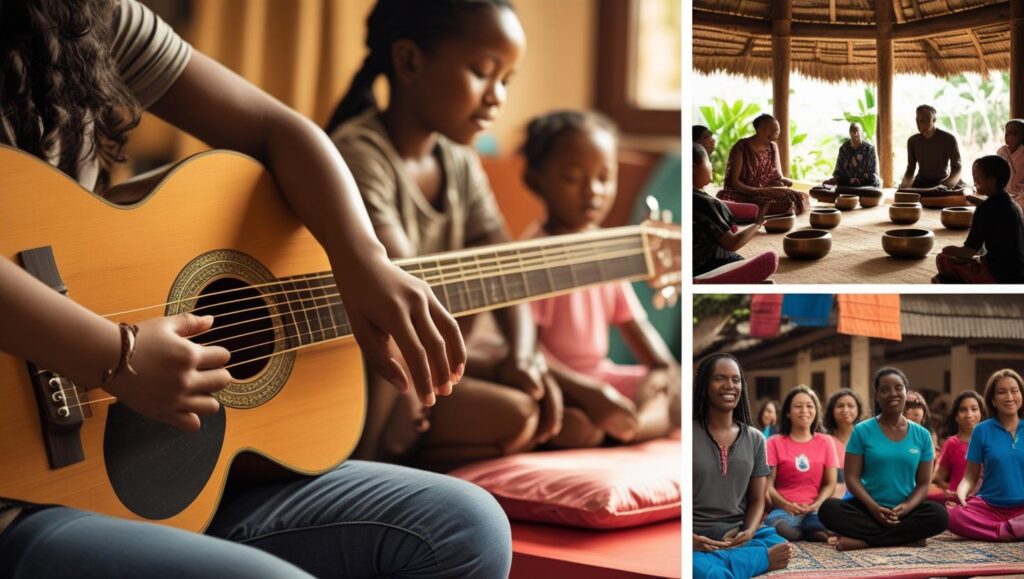
While listening to music is beneficial, learning music takes healing to another level.
For Children
Boosts concentration and memory
Improves confidence and self-esteem through performances
Provides a healthy alternative to excessive screen time
Builds discipline through daily practice
For Adults
Acts as a productive escape from work stress
Provides a sense of accomplishment (especially for beginners)
Enhances social connection through group classes or choirs
Offers lifelong joy and a meaningful hobby
In fact, many adults at The Mystic Keys have said that picking up music after years of thinking “it’s too late” has helped them manage anxiety and find balance in their busy lives
Music Therapy and Its Global Impact | The Transformative Power of Music Across Cultures

Music therapy has now become a recognized form of treatment worldwide. Hospitals, schools, and wellness centers actively use it to support mental and emotional health.
For Anxiety & Depression: Gentle music interventions reduce symptoms and provide emotional stability.
For Alzheimer’s Patients: Familiar songs trigger long-forgotten memories and improve mood.
For Autism Spectrum Disorder: Structured music activities help children develop communication and social skills.
For Trauma Survivors: Music becomes a safe channel to process emotions without words.
In India, classical ragas are traditionally believed to have healing properties. For example, Raga Darbari is said to reduce anxiety, while Raga Bhairavi brings peace and clarity.
The Role of Community and Connection

Humans are social beings, and music strengthens that bond:
Choirs and Group Lessons: Singing together builds belonging, reduces loneliness, and enhances happiness.
Cultural Celebrations: Music is central to festivals and rituals, connecting people to traditions and community.
Online Music Communities: In 2025, students worldwide join virtual ensembles, proving that music bridges distance and culture.
At The Mystic Keys, our group performances have shown how even shy students blossom into confident performers when they share music with peers.
Practical Ways to Use Music for Mental Wellness
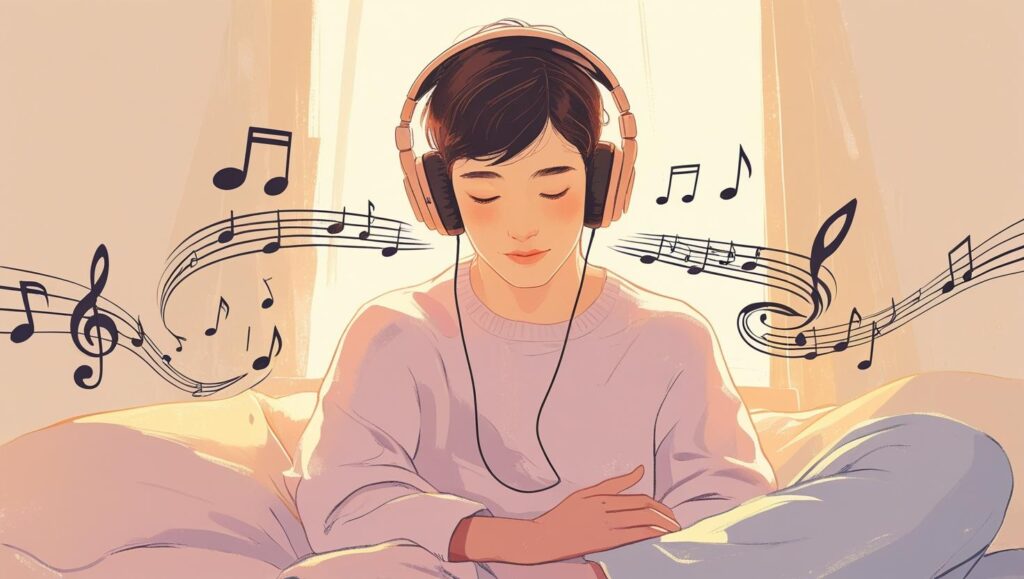
Here are simple ways you can integrate music into your daily routine for better mental health:
Morning Boost: Start your day with positive, energetic tracks instead of checking social media.
Work Breaks: Use instrumental playlists for focus during study or work sessions.
Evening Calm: Wind down with soft piano or Carnatic music to relax before sleep.
Active Participation: Dedicate 15–20 minutes daily to learning or practicing an instrument.
Sing it Out: Singing—even alone—releases endorphins and improves lung health.
Join a Class: Structured learning keeps you disciplined and connected.
Why The Mystic Keys Believes in Music as Therapy

At The Mystic Keys, music education is more than just teaching notes and rhythms. Our mission is to help students discover how music can transform life itself.
Children gain focus, discipline, and confidence.
Adults rediscover creativity and find stress relief.
Families build stronger bonds when they share music together.
Every lesson is designed not only to teach skill but to bring joy, healing, and personal growth
Conclusion
The connection between music and mental health is profound. It’s not just about becoming a professional musician; it’s about using music as a tool for happiness, healing, and self-discovery. Whether you listen, sing, or play, music has the power to transform your mind and improve your quality of life.
At The Mystic Keys, we invite you to experience this journey—because when you learn music, you don’t just learn an art form, you discover a lifelong source of peace and joy.
For more information and exciting resources about learning music, visit our website at The Mystic Keys. For more music content and exciting offers follow us on
Facebook, Instagram, YouTube, LinkedIn, Twitter, Pinterest, and Threads,


